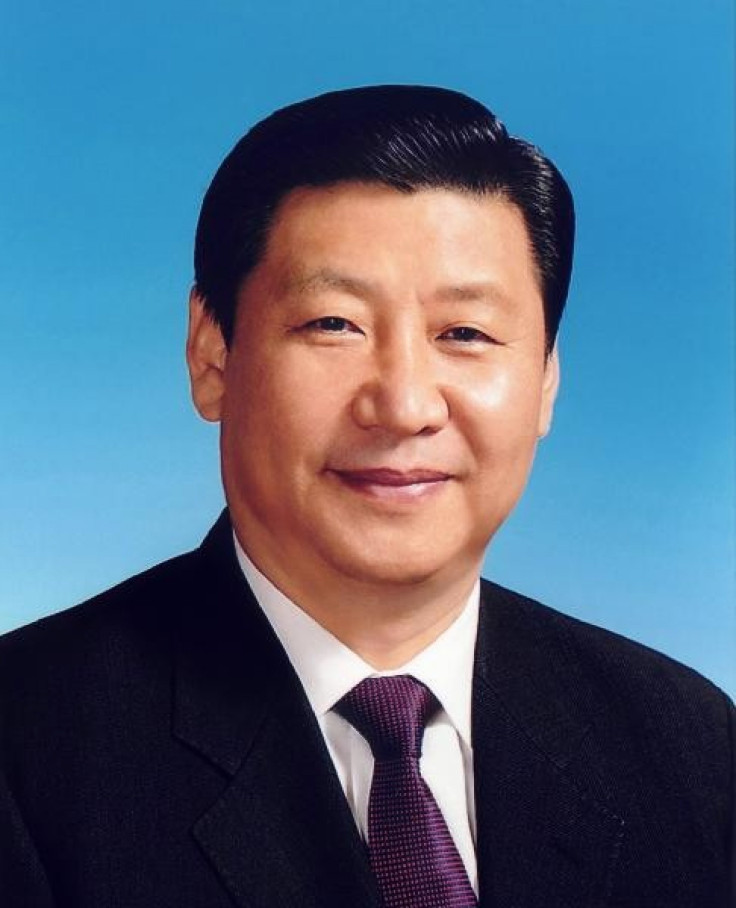Xi Jinping Visits Obama in Washington: 9 Must-Knows About China’s Vice President

Chinese Vice President Xi Jinping made his first state visit to the White House Tuesday in preparation for his all-but-certain rise to China's highest seat of power, a transition beginning next month. Xi is expected to succeed Hu Jintao first as General Secretary of the Communist Party of China (CPC) and then president in March 2013. The 58-year-old communist leader's rise to power had uncertain beginnings, but ultimately followed the formulaic path of political grooming and steady ladder-climbing known to produce China's recent and future leaders. Here are nine things you must know about how he rose to power:
1. Born a princeling
He was born May 31, 1953, a princeling, son of one among the first generation of communist leaders that fought in the Chinese Civil War (1927-1949). His father rose to power within Mao Zedong's inner circle to become vice premier, only to fall out with the Chairman and be sent to work in a factory in 1962 and then imprisoned for 16 years.
2. Outcast as a youth
As a result of his father's deposition, Xi was sent to work on a farm in Shaanxi Province in 1969 as part of Mao's Cultural Revolution-era reeducation program for urban youth to purge them of any bourgeois-capitalist thinking.
3. Reformed to become a Party member
Xi remained in Shaanxi until 1975. Having joined the Communist Youth League in 1971, and the CPC in 1974, he became the local branch secretary in Yanchuan County.
4. Educated as an engineer
From 1975-1979, he studied chemical engineering at Tsinghua University in Beijing.
5. Elevated through the Party ranks
From 1979-1999, Xi served in various posts within the Party, steadily rising up within the ranks of leadership until he became deputy secretary (second within the local Party hierarchy) in Fujian Province, as well as acting governor (first within the local state hierarchy, a parallel political structure that is ultimately subservient to the Party hierarchy). In addition, he simultaneously held several high-ranking military posts. (Note: Fujian's coastline lies less than 100 miles from Taiwan, resulting in an extensive military buildup--with no less than 1,500 ballistic missiles pointed at the island--in and around the province).
6. Groomed for leadership
From 1998-2002, while serving in Party posts in Fujian and later becoming governor there, Xi completed a post-graduate program in Marxist theory and ideological education through Tsinghua University.
7. Tested for consistency
From 2002-2007, Xi was relocated to Zhejiang Province, where he served as deputy secretary for a year and then Party Chief (secretary) for the remainder. In 2007, he was relocated to Shanghai, where he served as the Party Chief, following the previous secretary's ouster over a pension-fund corruption scandal.
8. Brought into Beijing's inner circle
Xi's tenure as Shanghai Party Chief was brief, and before 2007 was over, he was selected to join the Politburo Standing Committee (PSC) in Beijing, the highest organ of Party leadership, composed of nine members, including President Hu Jintao, who chairs the committee as General Secretary.
9. Chosen for succession
In 2008, Xi was elected Vice-President of China by the 11th National People's Congress, the highest state body consisting of 2,987 members, 70 percent of which belong to the CPC with the other 30 percent reserved for non-Party-affiliated members, who serve in assistance rather than opposition to the Party. The final decision to select Xi for the presidency and the Party's leadership was in all likelihood made internally by the PSC, but will be made official in the next session of the NPC in March this year.
© Copyright IBTimes 2024. All rights reserved.











